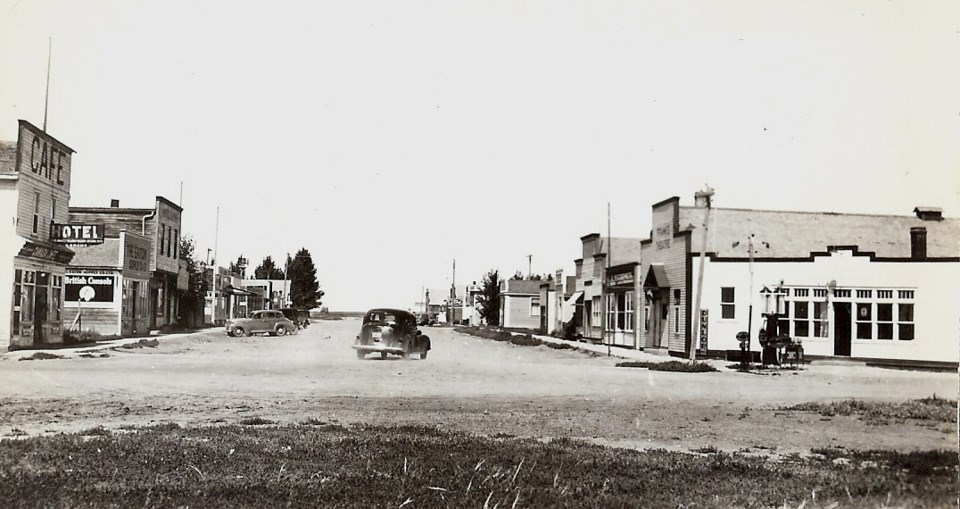The eyes behind my eyes can see into the past. They become the eyes of a boy in the brilliance of his ninth summer staring at a large, glossy calendar on the white v-joint wall of the Canada Café. Amid a jumble of Chinese characters was the photograph of a commanding figure. The man from Canton whom everyone called Jim Kow anticipated my question. “His name,” he said, “is Sun Yat-sen.” I tried to repeat the name, but couldn’t produce the singing intonation of Cantonese. He repeated the name over and over. Every time he said it there was reverence in his voice. I remembered the name but had no understanding of its significance. Then I flitted away to another high summer adventure. There were gophers to catch down by the railway tracks.
More than 82 years have gone by since I left the Canada Café to continue my war against gophers. I have learned about the thousands and thousands of deaths, both in battle and by execution, which established the Manchurian Qing Dynasty as the dominant political and military force in China. I have read about the shameful Opium Wars in which Britain and France forced the Qing government to permit the continued sale and export of opium, a trade which the Qing government had attempted to bring to an end. A weakened and humiliated Qing government was forced to cede Hong Kong to Britain and the island of Taiwan to Japan.
I paint history with a wide brush. Sun Yat-sen died in 1925, but his influence lived on. When the Qing government was overthrown, his military commander, Chiang Kai-shek, became the leader of the Chinese nationalist government. After the Japanese invasion of China, there was a temporary alliance between the Nationalists and the Communists under Mao Tse-tung. When the Second World War ended Generalissimo Chiang Kai-shek was photographed sitting with Franklin D. Roosevelt and Winston Churchill. He was the man they recognized as the leader of all of China. It was the Communists under Mao Tse-tung who had provided most of the military power which expelled the Japanese invaders from the Chinese mainland. In 1949 the Peoples’ Republic of China was recognized internationally as the legitimate government of mainland China. The Nationalists, under Chiang Kai-shek retreated to Taiwan. Each of the two Chinas claims sovereignty over the other.
The government of Taiwan is said to have 300,000 persons in its active forces and another 3,870,000 in reserves. Except for an ice-breaker, Taiwan is better armed in every category than Canada and nothing in its weaponry is second-hand. Canada, almost 280 times larger than Taiwan, has only 88,000 persons in its active forces and 24,000 in reserves.
The presence of American forces, which have continued to support South Korea since the armistice with North Korea, are the real deterrent to any attempt by the Peoples Republic to seize Taiwan. No matter how well-armed, Taiwan could not protect itself from being reabsorbed.
The Trump administration has given North Korea’s lethal, wily dictator a place on the world stage which was previously withheld. If this leads to a reduction in American forces on the China Sea, the threat to Taiwan grows.
There is a reason why Canada, larger and more populous than Taiwan, is less well-armed. It dates back the presidency of James Munroe and the policy called the Munroe Doctrine which was announced in 1823. The policy stated that any armed incursion by European powers in South or North America would be regarded as an attack on the United States of America. The other side of this policy coin was the promise that the United States would not intrude in the political affairs of Europe. It was a policy which could not be enforced. The British Navy, then the most powerful in the world, could and did enforce it, because it was in the interest of Great Britain to stop empire building in the Western Hemisphere by Spain and Portugal.
Over time, what was policy became tradition. Perhaps this tradition engendered the isolationist policies which delayed the entry of the United States into the First and Second World Wars.
In 2018, the North American Aerospace Defence Command makes the United States and Canada allies in the defence of North America against attacks by foreign powers. This means that the United States of America is the only power which could succeed in annexing any part of Canada. Under normal circumstances this will never happen. The circumstances are not normal, however, as long as the executive branch of the American government is controlled by a self-serving, lecherous liar who has no knowledge of history nor of the subtle nuances of successful diplomacy.



